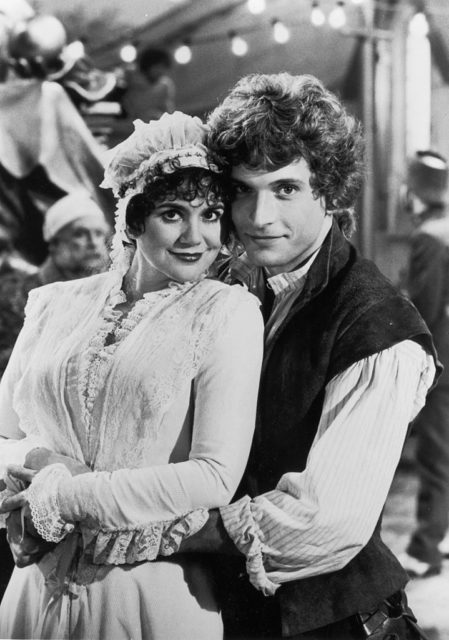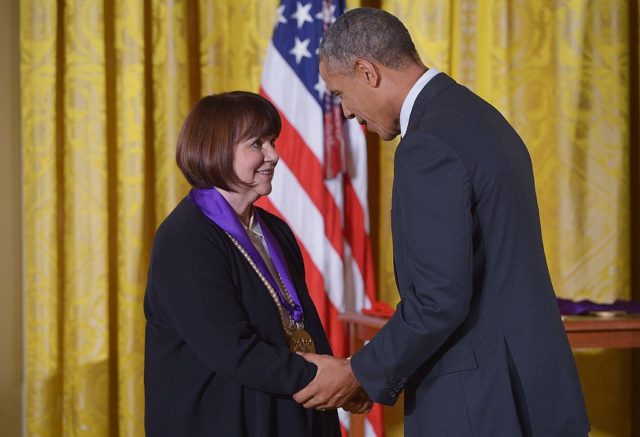American singer Linda Ronstadt is famous not just for her astounding voice and range, but for the ease with which she navigated through musical genres. She performed country, opera, Latin and, most famously, rock music throughout her career. However, by 2011, her career came to an end after health difficulties left her unable to sing.
In January 2024, it was announced that actor and musician Selena Gomez would be portraying Ronstadt in an upcoming biopic.
Linda Ronstadt had an incredible career

Given the name “The First Lady of Rock,” Linda Ronstadt has had an amazing career. She began singing professionally in the mid-1960s as part of a folk rock band, before moving on to her career as a solo artist.
It was her first solo album, Hand Sown…Home Grown, that served as Ronstadt’s first foray into the world of country-rock music. While she began touring with other musicians after this, it wasn’t until she produced a few more albums that her rock music really took off.
Always continuing to broaden the scope of her music, Ronstadt agreed to perform in the comic opera, The Pirates of Penzance in the 1980s. This earned her a Tony nomination and solidified her popularity as a performer for making such an unexpected move.
She continued to produce albums, many of which went multi-platinum. During this period, Ronstadt was also selling out most of her concerts, setting many records as one of the top-grossing performers of her era.
Unknown illness

When she retired in 2011, it wasn’t because Linda Ronstadt had lost interest in music. Rather, she’d developed a rare condition that had begun to affect her ability to sing. She told Anderson Cooper that she couldn’t hear the notes at the top of her vocal range, saying, “My throat would clutch up. It would just be like I had a cramp or something.”
Ronstadt didn’t discuss the condition, initially believed to be Parkinson’s disease, publicly until 2013. In 2019, she learned she actually had a much rarer condition called Progressive Supranuclear Palsy (PSP), which caused her inability to sing. PSP, a brain disorder that impacts an individual’s ability to speak, swallow, see, think and move, is caused by damaged nerve cells in the brain. It’s often misdiagnosed as Parkinson’s, due to their similar symptoms.
Singing without singing

Despite being unable to sing aloud now due to her illness, Linda Ronstadt has found a new way to continue enjoying music. In an interview with TODAY, she went into detail about how she keeps up with her music, saying, “I can sing in my brain. Sometimes, I choose the song, and sometimes my brain chooses the song.”
She admits, however, that when it’s the latter making the choice, the options are usually far from enjoyable. “My brain chooses the worst music. It just blares away in my head, like really bad Christmas carols,” she revealed.
Interestingly, the songs Ronstadt performs in her head are rarely, if ever, her own, but are, instead, those of others. She envisions the entire performance in her mind, knowing exactly “what [she] would be doing with it,” including the musical accompaniments. Ronstadt tries to make the best of the situation, even if she misses being able to sing aloud. She admits that singing in her head just is “not quite the same.”
Selena Gomez will be portraying Linda Ronstadt in a new biopic

On January 10, 2024, it was announced Selena Gomez, best known for playing Alex Russo on The Wizards of Waverly Place (2007-12) and Mabel Mora on Only Murders In the Building (2021-present), will be portraying Linda Ronstadt in an upcoming biopic about the musician’s life.
In the early phases of production, the idea for the feature came from Ronstadt’s manager, John Boylan, and the producer of Walk the Line (2004), James Keach. The former was also involved in a 2019 documentary about the famed musician.
More from us: Julia Roberts Reveals She Almost Passed On Her Iconic ‘Notting Hill’ Role
There’s been no word yet on who will be directing or those slated to co-star alongside Gomez. To share the news, she posted a story to her Instagram, in which she showed a copy of Ronstadt’s memoir, Simple Dreams.
